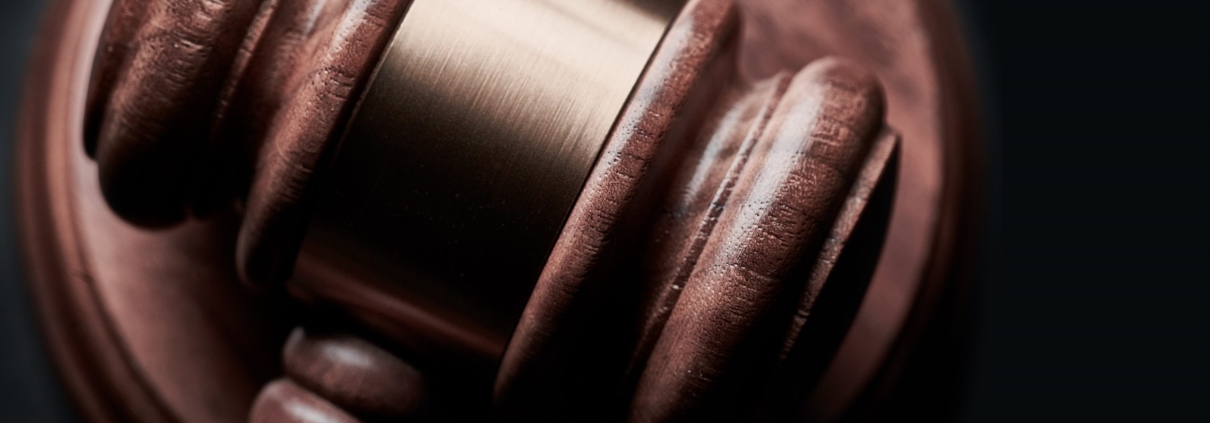The Forthcoming Pandemic of Litigation
Here’s What You Need To Know
As Americans begin returning to some semblance of normal life, organizations have more to consider than simply how to resume their usual operations and stay afloat in a shaky economy. Their actions leading up to, during, and after the coronavirus pandemic are now under a magnifying glass, as eager plaintiff’s attorneys prepare a tsunami of lawsuits and class action litigation to take advantage of the sympathy of the courts and frustrations of the public. Since the response to COVID-19 has affected Americans of all walks of life, trial lawyers will have little trouble finding plaintiffs for the cases they want to make.
As Congress considers the next steps it can or should take to help get Americans back to work, the debate over liability protections for businesses is heating up. While that debate remains ongoing, public affairs professionals must quickly mobilize to ensure their organizations or industries are included in reform legislation while simultaneously preparing their companies and industries for an onslaught in litigation. To help you understand and navigate this challenge, here’s what you need to know:
What Is Liability Reform, and Why Does It Matter?
What Is Under Debate: In the context of COVID-19, liability reform is meant to protect organizations against unreasonable lawsuits occurring as a result of the pandemic. For medical facilities like nursing homes and hospitals, lawsuit protection is especially crucial, as they have faced exceptional strains on their health care systems due to labor and resource shortages amid heightened demand. Manufacturers say they also deserve relief from potentially onerous liability, as they quickly retooled their operations to make needed products for the first time, such as personal protective equipment. And small businesses worry that, should employees or customers contract COVID-19 despite their best efforts to maintain safe and hygienic facilities, their organizations could crumble under the costs associated with fighting lawsuits. However, labor unions and trial lawyers say corporations already enjoy too much protection under the law, and liability reform would only further inhibit employees’ and the public’s rights to access the courts for financial remedy.
Subscribe to Receive Insights
"*" indicates required fields
Why It Matters: Business advocates have long argued that tort reform, legislation that restricts excessive or meritless litigation, improves productivity, lowers consumer costs, and increases employment opportunities. In the midst of an extraordinary public health crisis, advocates say that such efforts are not necessary merely for success but also for survival for many organizations. Coalitions ranging from the National Restaurant Association to the National Retail Federation pointed out in a letter they sent to lawmakers that “without Congressional action, the threat of litigation will mire our recovery and negatively impact the economy writ large by injecting great uncertainty and risk into the ability of our businesses to operate during the pandemic.” The U.S. Chamber of Commerce argues that without significant liability reform, businesses will lack the confidence to reopen, exacerbating America’s current economic hardships. On the other side, powerful labor unions and trial lawyer groups stand ready to fight any measure they believe artificially limits workers’ ability to sue their employer.
The outcome of this battle could determine if and how the economy begins to rebound after artificial shutdowns saw nearly 40 million Americans unemployed and hundreds of thousands of businesses shuttered. As business magnate and former Democratic presidential hopeful Michael Bloomberg noted, “It’s essential that companies take actions that protect their employees,” but “Even those that take every conceivable precaution … will face unprecedented liability concerns that could paralyze investment and prevent them from rehiring workers they may have laid off or furloughed.”
While Congress Debates, States Are Leading the Way
The State of the Capitol Hill Debate: Senate Majority Leader Mitch McConnell (R-KY) has been vocal about the need to pass meaningful liability reform to stave off frivolous lawsuits, arguing a “lack of protection for businesses owners from lawsuits related to the coronavirus would ‘dramatically slow’ the economic recovery.” Republicans on Capitol Hill have said they will not consider any forthcoming coronavirus response bills that do not prominently feature measures to protect businesses from frivolous lawsuits. The White House has indicated President Trump is supportive of Congressional GOP efforts to mandate liability reform as a part of any future coronavirus legislation.
While Senate Minority Leader Chuck Schumer (D-NY) has minimized such an effort as merely creating “immunity for big corporations,” some Congressional Democrats have vocalized a willingness to consider litigation protection in future COVID-19 legislation. According to The Wall Street Journal, Rep. Ro Khanna (D-CA) is “pushing legislation that would require OSHA to force companies to develop worksite-specific coronavirus-protection plans,” and that he is “open to a liability shield for companies that comply with strong mandates.” On the other side of the aisle, Rep. Michael Turner (R-OH) has introduced legislation to shield employers from lawsuits associated with employees catching COVID-19 after returning to work, so long as the employer is abiding by state and federal laws.
States Are Already Providing Protections, Especially To Healthcare Industry: While federal lawmakers weigh different legislative options, states are taking matters into their own hands. Governor Gary Hebert (R-UT) has signed what may be the broadest protections into law so far, “provid[ing] businesses liability protection stemming from an individual contracting coronavirus on their property,” which ensures business owners are “immune from civil liability for damages or an injury resulting from exposure of an individual to COVID-19” that occurs on their premises, as long as there is no reckless or intentional infliction of harm.
Time Magazine reports that at least 15 states led by governors of both parties have implemented liability protection for nursing homes, maintaining exception for “gross negligence and willful misconduct.” In New York, the state’s hospital association secured special protection from both civil lawsuits and criminal prosecution, as the health care system was overwhelmed by the worst outbreak of COVID-19 in the U.S. While they’re not immune to prosecution for intentional misconduct or gross negligence, medical professionals and facilities are protected from liability concerning “decisions resulting from a resource of staffing shortage.”
Democratic governors in Illinois and Michigan, not typically known for their support of tort reform, have enacted measures to protect health care professionals during the pandemic. Meanwhile, Republican legislators in Louisiana are pushing a bill that would provide liability coverage to health care workers, some real estate owners, and certain companies for actions taken during the pandemic. In Massachusetts, state legislators are considering offering liability immunity to higher education institutions who have offered emergency aid.
Pandemic-related Lawsuits Could Impact Recovery for Years
The Lawsuit Pandemic Has Already Begun: In an editorial, The Wall Street Journal points out that the lawsuit pandemic is already well underway, explaining, “Trial lawyers are filing suits against emergency-supply manufacturers (false advertising), colleges (refusal to refund student fees), cruise lines (emotional distress), retailers (wrongful death), nursing homes (negligence), and governments (denial of hazard pay)—and much more.” Even in the early days of the pandemic, trial lawyers had begun filing class action lawsuits against a wide array of institutions and industries. Some plaintiffs are angry that airlines are providing credits instead of refunds to their customers, while others claim that they were wrongfully denied federal stimulus payments. The entertainment industry is already being hit, with SXSW organizers facing a lawsuit for its refusal to refund tickets due to the festival’s cancellation. Law 360 says these cases are only the tip of the iceberg, with Adam Levitt, a partner at Chicago-based plaintiff’s firm DiCello Levitt Gutzler LLP, telling the outlet they’ve “never been busier.”
Lawsuits Are A Multi-Year Process: With or without liability protection, lawsuits that do move forward may take many years, costing both sides an inordinate amount of time and money. In fact, there is significant historical precedence for protracted legal battles lasting long after catastrophes and crises take place. These cases can take many years to make it through the courts. In fact, it took a group of 35 plaintiff’s attorneys more than 11 years to collect just $20 million in payments for 120,000 claims against the U.S. Army Corps of Engineers and construction firms whose alleged failures resulted in widespread destruction during Hurricane Katrina. For a group of more than 150 home and business owners in New York, fires sweeping the Rockaway Peninsula of New York City before or after Hurricane Sandy meant spending seven years fighting two of the state’s utility companies through multiple courts just to secure a jury trial for their claim. As businesses and governments spend time and money on these suits, they are not focused on the recovery.
An Ounce of Prevention is Worth the Investment: Savvy public affairs professionals have anticipated this lawsuit pandemic since COVID-19 began. They understand the tremendous financial and reputational damage that lawsuits both valid and frivolous could pose to their companies and industries, and they know that being armed with the best information possible is key to weathering the storm. Every organization needs a competitive intelligence advantage to make the case to lawmakers that they should be included in any reform legislation and to protect themselves against litigation risk. Delve can help by going deep beneath the surface of the news to find out which industries and companies are being targeted and why. We use a custom approach to uncover the motivations and organizing tactics of those posing a risk to organizations, as well as the teams they’re assembling to make it happen, ensuring you are well-positioned to prepare for the risks and fight back successfully should they arise.



